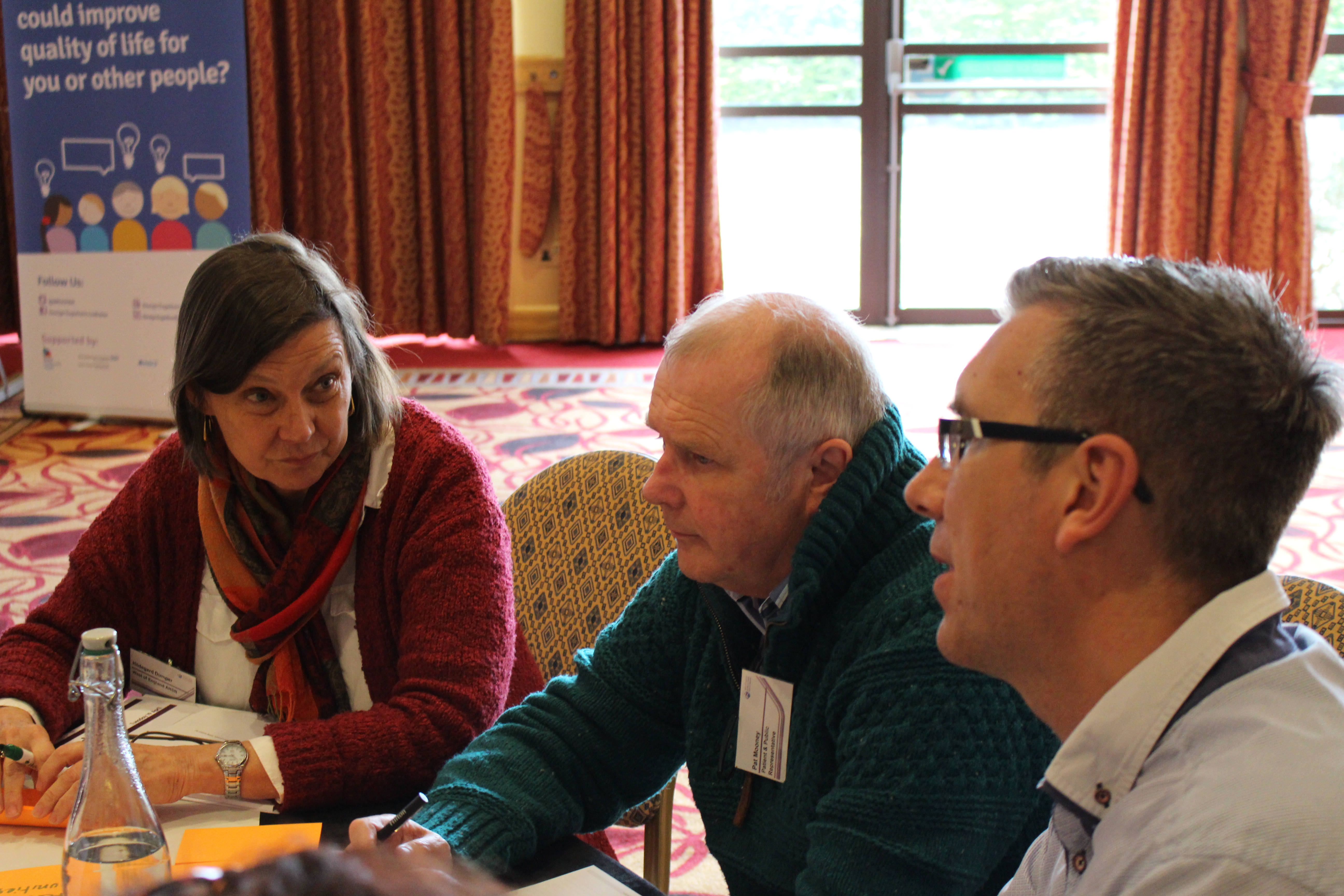
People in Health West of England (PHWE) was established to promote innovative and effective public involvement in health research and evidence-based service improvement, and works with four core partners: the West of England AHSN; Bristol Health Partners (BHP); the NIHR Clinical Research Network (CRN): West of England; and CLAHRC West.
Here are some highlights of its work over the last year.
PHWE continues to provide a shared resource for its partners and for the West of England generally. In the last year it launched its website, which aims to provide a central hub for accessing resources and information on training and events relating to public involvement. Their fortnightly Newsflash distribution is up by 59% from May 2015 and now reaches 585 subscribers, and advertised 68 involvement opportunities for people locally.
Over the past year PHWE held a range of workshops to raise awareness and skills in health research. Topics covered research question generation, using and understanding research evidence, and building research partnerships. Geared towards both healthcare professionals and the public, they were held in the four main population centres of Bath, Bristol, Gloucester and Swindon. To date their training programme has attracted 390 attendees coming from across the region.
The practicalities of working with members of the public in the spirit of co-production is one that has challenged all our partners and PHWE has benefited from having a specialised team to put in place the thought and mechanics needed to make this successful. One example of this way of working has been the consultation carried out with members of the public on BHP’s strategic aims. This involved staff and the two public contributors on the BHP Executive working together to run a workshop to listen to the views of a range of people attending.
PHWE offers support for co-production based on an approach that is proven to work. Over the past year they have developed a shared approach to the selection and management of public contributors, helping to co-produce the work in their partners’ organisations. Guidance for managing volunteer payments, codes of conduct and sample role descriptions are all freely available on their website.
PHWE now has a team of nine, located with their various partner organisations, as well as centrally in Whitefriars. This sharing of experience and expertise is already demonstrating the benefits of the initiative. For example, many of the Health Integration Teams (HITs) are at the early stages of involving public contributors in their work. They are able to build on the networks, experience and resources outlined above to put this in place without having to re-invent the wheel.
The training course ‘Building Research Partners’, which PHWE had already started to run, is also one of the CRN’s national objectives.
For the West of England AHSN, it was involvement by team members in their ‘Design Together, Live Better’ ideas generation workshops that led to the suggestion for a portable bidet for people with disabilities, which is now at design prototype stage.
PHWE is able to offer access to the views of children and young people though the BHP-funded Young People’s Facilitator. Because of the support of BHP, PHWE is able to continue to support the Young People’s Action Group that meets at the Bristol Children’s Hospital and was set up by the CRN.
PHWE recently held a review of current working and governance arrangements of partners. This confirmed the current approach to drawing up a shared work programme. Plans for next year include carrying out an evaluation of PHWE so that they can ascertain the sustainability of this model and its viability for replication elsewhere.
For more information, contact Hildegard Dumper, PHWE Manager: hildegard.dumper@weahsn.net or visit www.phwe.org.uk.
Posted on May 9, 2016


